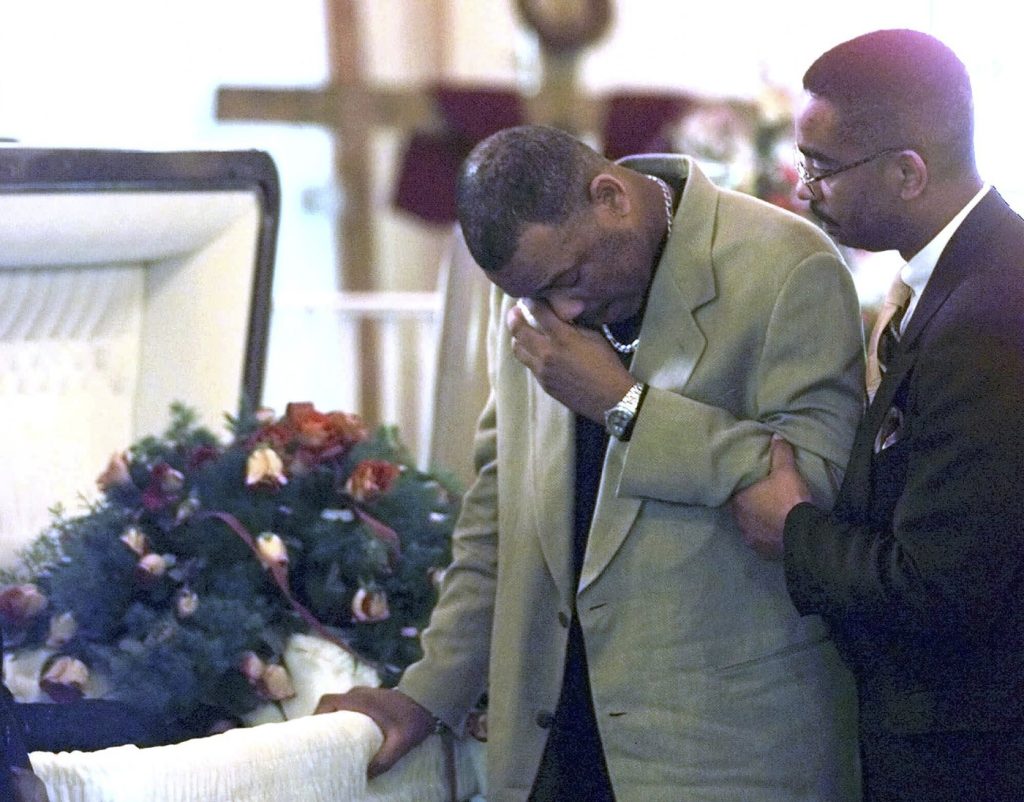Family outraged after man convicted in Connecticut killings gets clemency from Biden in drug case

Posted Jan 22, 2025 06:52:12 PM.
Last Updated Jan 22, 2025 07:01:51 PM.
Relatives of an 8-year-old boy and his mother who were murdered by a Connecticut drug gang are outraged that a man convicted in the killings was one of nearly 2,500 people whose drug-related prison sentences were commuted by former President Joe Biden in his last days in office.
Adrian Peeler served a 20-year state prison sentence for murder conspiracy in the 1999 shootings of Leroy “B.J.” Brown and his mother, Karen Clarke, in Bridgeport — killings that shocked the city and led to improvements in state witness protection. Prosecutors said Brown and his mother were assassinated to prevent the child from testifying in another murder case.
In December 2021, Peeler finished his state sentence but began serving a 15-year term in federal prison for dealing large amounts of crack cocaine.
The federal sentence would have kept him behind bars until 2033. He is now set to be released in July.
Clarke’s brother, Oswald Clarke, said the commutation caught his family by surprise and that they were angry and dismayed.
“I’m sick and tired and I’m disgusted,” he told The Associated Press in phone interview Wednesday. “It’s a very shocking thing. My family is very distraught about it. It’s like we’re being traumatized all over again.”
It wasn’t immediately clear how Peeler, now 48, came to Biden’s attention, and the former president did not publicly disclose specific reasons for commuting Peeler’s federal sentence. Email and social media messages were left with former White House spokesperson Karine Jean-Pierre and current White House spokesperson Harrison Fields.
In announcing the clemency actions Friday, Biden said he was commuting the sentences of people convicted of nonviolent drug offenses, saying their prison terms were too harsh. The Democrat said he was seeking to undo “disproportionately long sentences compared to the sentences they would receive today under current law, policy, and practice.”
A grand jury indictment of Peeler in the drug case did not mention the killings, only that he and others conspired to sell multi-kilogram quantities of crack cocaine.
U.S. Sen. Richard Blumenthal, a Connecticut Democrat who was the state’s attorney general when Brown and his mother were killed, said “someone dropped the ball” in Peeler’s clemency. He and other political leaders in Connecticut, including Bridgeport Mayor Joe Ganim, criticized the commutation.
“This was a really vicious murder that changed our laws,” Blumenthal said in a statement. “It also highlights how we need to take a look at the pardon system to see how it can be improved.”
State Sen. Stephen Harding, the Republican minority leader, called the clemency “a slap in the face to all Connecticut victims of violent crimes and their families.”
Peeler’s lawyer, Michael Brown, declined to comment on the clemency. He said Peeler has worked hard to rehabilitate himself in prison and is a different person than he was a quarter-century ago.
“The guy has done a lot of work on himself and helped a lot of people during his incarceration,” Brown said.
A spokesperson for the U.S. attorney’s office in Connecticut, which prosecuted the drug case against Peeler, said Wednesday that it was not consulted or notified in advance about Peeler’s clemency. The office declined further comment.
Prosecutors have said Peeler, at the direction of his older brother, Russell Peeler, gunned down Brown and Clarke in their Bridgeport home Jan. 7, 1999. Authorities said the brothers wanted to eliminate Brown as a witness against Russell Peeler in the 1998 killing of Clarke’s boyfriend, Rudolph Snead.
Brown had identified Russell Peeler to police as the person who shot Snead in a 1997 attack that Snead survived. The boy, who had been riding in Snead’s car when he was shot, was expected to testify about the drive-by attack at Russell Peeler’s trial for subsequently attacking Snead again and killing him at a barbershop.
Both Peelers were charged by the state with capital felony and murder and faced the possibility of the death penalty. Despite Adrian Peeler being the alleged shooter, a jury only convicted him of murder conspiracy and he was sentenced to 20 years in prison on the charge and five more years on other charges.
Russell Peeler was convicted and sentenced to death for ordering the killings. He was resentenced to life in prison without the possibility of release in 2016 because the state abolished the death penalty. He also was sentenced to 105 years in prison for killing Snead.
In response to the killings, the state legislature passed a law creating a new witness protection program that includes special protections for children.
Federal authorities said Russell Peeler ran a sophisticated crack cocaine dealing operation in Bridgeport with a hierarchy that included his brother. Before the killings, prosecutors said Adrian Peeler had a criminal record that including shooting an automatic weapon into an apartment where four young children were inside but not injured, escaping from a halfway house and assaulting a correction official.
In the federal drug case, Adrian Peeler pleaded guilty to conspiracy to possess with intent to distribute and to distribute cocaine and was sentenced to 35 years in prison. A judge in 2021 reduced the sentence to 15 years, citing revised sentencing guidelines meant to eliminate disparities in prison terms for those sentenced on powder cocaine charges and those locked up for crack.
“We’ve tried for years and years to keep this guy off the streets,” Oswald Clarke said. “And it’s a major insult in every way, and the whole state of Connecticut should be shocked, appalled and embarrassed, and the federal government regardless of who’s in power, they all should be embarrassed for the kinds of things they are doing.”
Dave Collins (hartford, Conn.), The Associated Press








